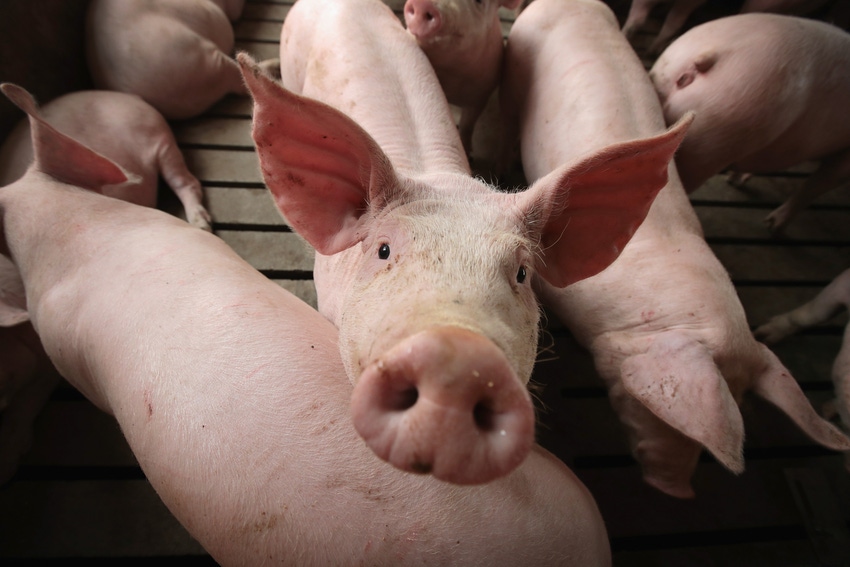Optimizing vitamin A supplementation to enhance swine nutrition
Different forms of vitamin A are used for multiple biological functions.
October 2, 2023

Vitamin A is essential in pig diets because it affects so many aspects of development: growth, cellular metabolism, bone development, and reproduction. Considerable research has been devoted to this functional compound to optimize its use in swine production. Scientists from Germany investigated current scientific knowledge on vitamin A requirements, and their review is presented in a new article in Applied Animal Science.
The review begins by thoroughly describing the metabolism of the three chemical compounds that are referred to as "vitamin A": retinol, retinal, and all-trans retinoic acid. The scientists explain how the different forms of vitamin A are used by the body for multiple biological functions, including vision, immunity, cell differentiation, regulation of adipose tissue metabolism, and bone growth and development. Deficiency in vitamin A may lead to diseases, reproductive disorders, impaired vision and bone growth, or bone malformations.
To properly fulfill dietary requirements for this crucial compound, it is common to supplement pig diets with synthetic retinol.
"This review provides an overview of the influence of supplemental retinol on various aspects of pig production," said lead author Yauheni Shastak (BASF SE, Ludwigshafen am Rhein, Germany).
The article discusses numerous studies on supplementation and injection of vitamin A in swine at different doses and stages of maturity and the benefits to male and female reproduction, fetal development, and litter size and weight. The scientists also supply much evidence from the literature on the role of this vitamin in optimal immune function and defense against disease and infection.
"Vitamin A is crucial for immune modulation, maintaining mucosal barriers, enhancing mucosal homing, generating regulatory T cells, and increasing immunoglobulin A secretion," said Shastak.
The article also reviews studies on the role of vitamin A supplementation in preventing iron deficiency anemia in neonatal pigs and studies on vitamin A as an antioxidant, although its antioxidant efficacy in the form of retinol is debatable.
As demonstrated in this review, providing pigs with adequate vitamin A is crucial for health and commercial production. According to Shastak, calculating necessary amounts of supplementation can be challenging because requirements "are influenced by factors such as genetics, age, sex, body weight, and contextual parameters." He notes that recommendations from the GfE (Gesellschaft für Ernährungsphysiologie, Society for Nutritional Physiology) and NASEM (National Academies of Sciences, Engineering, and Medicine) are made based on findings from decades ago in ideal, controlled research settings, not modern, real-world situations. The scientists pointed out that most nutritionists consider the NASEM vitamin A requirements to be a minimum; actual requirements should be estimated with individual circumstances in mind. Several considerations when determining vitamin A requirements for a swine herd are listed. This article reviews current scientific literature and standard recommendations on the supplementation of vitamin A in diets for optimal swine nutrition.
The article appears in the October issue of Applied Animal Science.
You May Also Like



